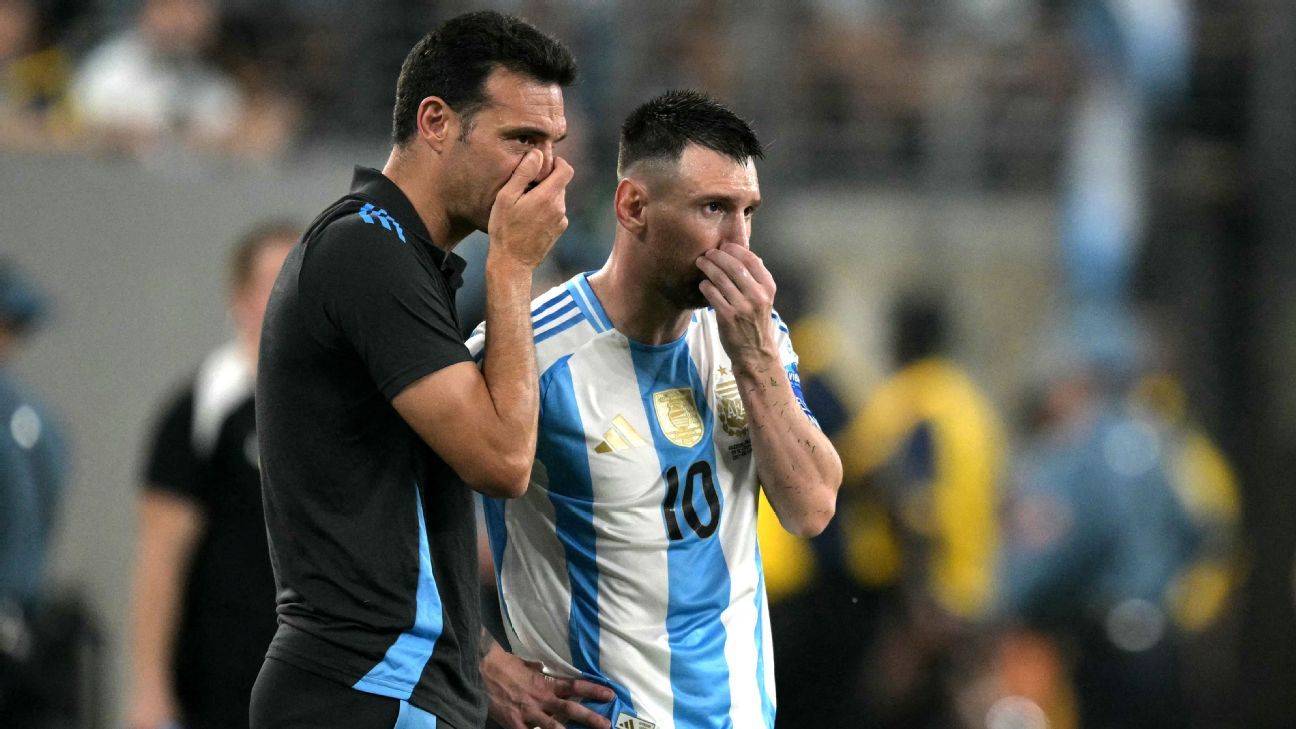Scaloni’s Stance: Should We Leave Lionel Messi Out of the 2026 World Cup Conversation?
As the 2026 FIFA World Cup approaches, the footballing world is buzzing with speculation and debate, particularly regarding the future of one of its greatest icons: Lionel Messi. The current head coach of the Argentine national team, Lionel Scaloni, has recently made remarks that have raised eyebrows, suggesting that the legendary player’s involvement in the tournament could be reconsidered. This has sparked an important conversation about Messi’s role in international football as he edges closer to the twilight of his illustrious career. Should we really leave Lionel Messi out of the World Cup conversation, or does he still have much to contribute?
The Context: Messi’s Legacy and Current Form
To understand Scaloni’s stance, it’s essential to look at Messi’s journey and current state. After leading Argentina to victory in the 2021 Copa America and the 2022 FIFA World Cup, Messi has solidified his status as a national hero. His performance in these tournaments has been nothing short of phenomenal, showcasing his ability to change the course of a match with his extraordinary skill and vision.
However, as Messi approaches his 36th birthday, questions arise about his physical condition and long-term sustainability in international competitions. The demands of modern football are immense, and even the greatest players face the inevitable decline that comes with age.
Scaloni’s Remarks: A Double-Edged Sword
Scaloni’s recent comments suggest a more cautious approach regarding Messi’s participation in the 2026 World Cup. While he acknowledges Messi’s unparalleled talent, he also emphasizes the importance of planning for the future of the national team. This raises a critical question: Should Argentina be preparing for life after Messi, or can he still play a pivotal role in their quest for glory?
Some of the key points from Scaloni’s remarks include:
- Balancing Experience with Youth: Scaloni is keen on integrating younger talents into the squad, ensuring a smooth transition as Messi inevitably steps back.
- Physical Demands: He highlights the need to manage Messi’s workload, considering the rigorous schedule that comes with being part of an international squad.
- Strategic Planning: Scaloni believes in preparing the team for future competitions, which may involve reducing Messi’s role to allow for the development of new leaders.
Arguments for Keeping Messi in the Fold
Despite Scaloni’s cautious approach, there are compelling reasons to keep Messi in the national team conversation:
- Experience and Leadership: Messi’s experience is invaluable, particularly in high-pressure situations. His presence can guide younger players through the complexities of international tournaments.
- Unmatched Skill: Even at 36, Messi’s skill level is extraordinary. His ability to impact a game is still among the best in the world, evidenced by his performances in club football and his ability to deliver during crucial moments.
- Fan Engagement: Messi’s participation brings significant attention and excitement to the team, which can enhance the overall morale and support from fans.
The Case for a Gradual Transition
One potential solution is to adopt a hybrid approach where Messi can still contribute while allowing new talent to emerge. This could involve:
- Limited Appearances: Messi could play a limited number of games leading up to the World Cup, ensuring he is fit for the tournament itself.
- Mentorship Role: He could take on a mentorship role, helping to develop younger players while still participating in matches.
This approach would allow Argentina to leverage Messi’s incredible talent while simultaneously preparing for a future without him. It’s a delicate balance, but one that could yield positive results for the national team.
Potential Impact on Team Dynamics
Leaving Messi out of the 2026 World Cup conversation could have significant implications for team dynamics. His influence extends beyond the pitch; he embodies a winning mentality that inspires those around him. The transition to a new era without Messi could be challenging for the team, and managing this change will require strategic planning and emotional intelligence.
Building a Team Identity
As Argentina looks to the future, building a cohesive team identity will be paramount. Here are some strategies that could help:
- Fostering Young Talent: Providing opportunities for younger players to gain experience in international matches will be crucial for their development.
- Creating a Supportive Environment: Establishing a team culture that values collaboration and mutual respect can help integrate new players and ease the transition away from Messi’s era.
Conclusion: A Delicate Balancing Act
The debate over whether to leave Lionel Messi out of the 2026 World Cup conversation is complex and multifaceted. While Lionel Scaloni raises valid points regarding the future of the Argentine national team, the potential benefits of keeping Messi involved are equally compelling. Ultimately, this decision should be guided by a combination of Messi’s physical condition, his willingness to adapt to a reduced role, and the need for strategic team development.
As we approach the 2026 World Cup, one thing remains certain: Lionel Messi’s legacy will forever be intertwined with Argentine football. Whether he steps onto the pitch in the tournament or not, his impact will continue to resonate, and the decisions made in the coming months will shape the future of a generation of players.
In the end, it’s not just about one player, but about the legacy they leave for those who will come after. Should we leave Lionel Messi out of the World Cup conversation? Perhaps not. Instead, let’s embrace the idea of a gradual transition that honors his contributions while preparing Argentina for a bright future.
See more Sky News Portal



